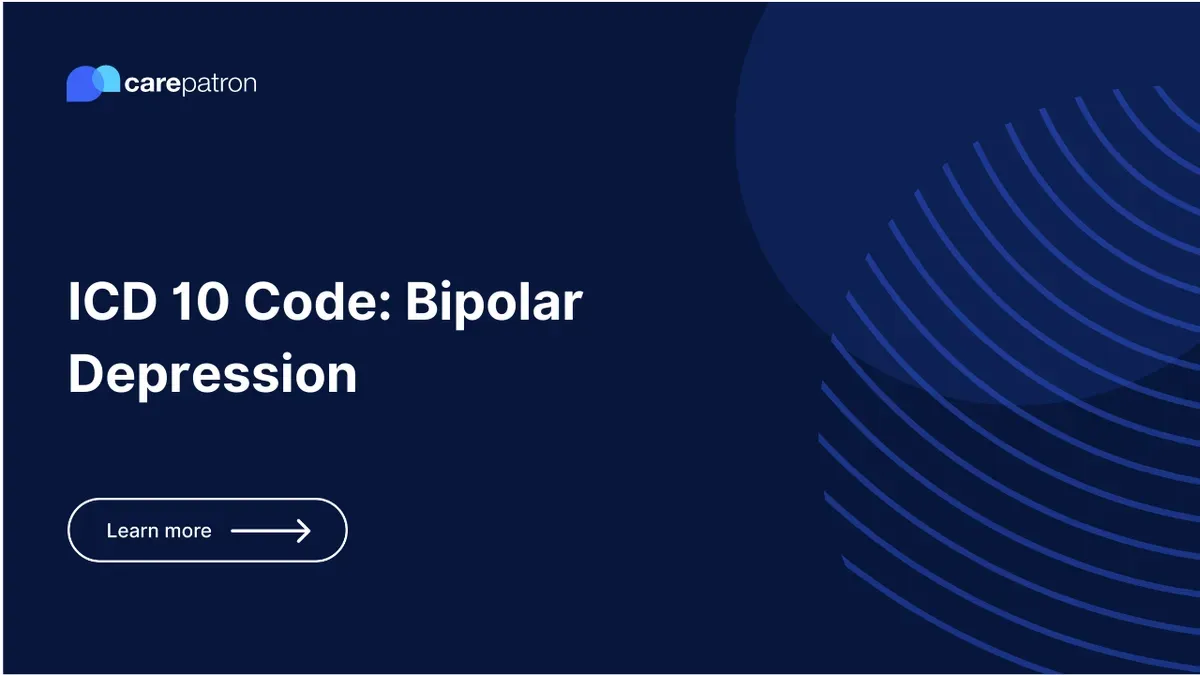
Bipolar Depression ICD-10-CM Codes
Explore the ICD-10 codes used for diagnosing and billing Bipolar Depression. This ICD Cluster includes billable codes, clinical descriptions, synonyms & FAQs.
Use Code
Commonly asked questions
A Bipolar Depression ICD code should be used when a clinician diagnoses a patient with bipolar disorder and the patient is currently experiencing a depressive episode.
Yes, diagnosis of bipolar depression are billable, and the specific billable ICD-10 codes have been listed above.
Treatments usually involve a combination of medication (like mood stabilizers, antipsychotics, and antidepressants), psychotherapy (such as cognitive-behavioral therapy and family-focused therapy), and lifestyle modifications (like regular exercise, adequate sleep, and healthy eating).
EHR and practice management software
Get started for free
*No credit card required
Free
$0/usd
Unlimited clients
Telehealth
1GB of storage
Client portal text
Automated billing and online payments
